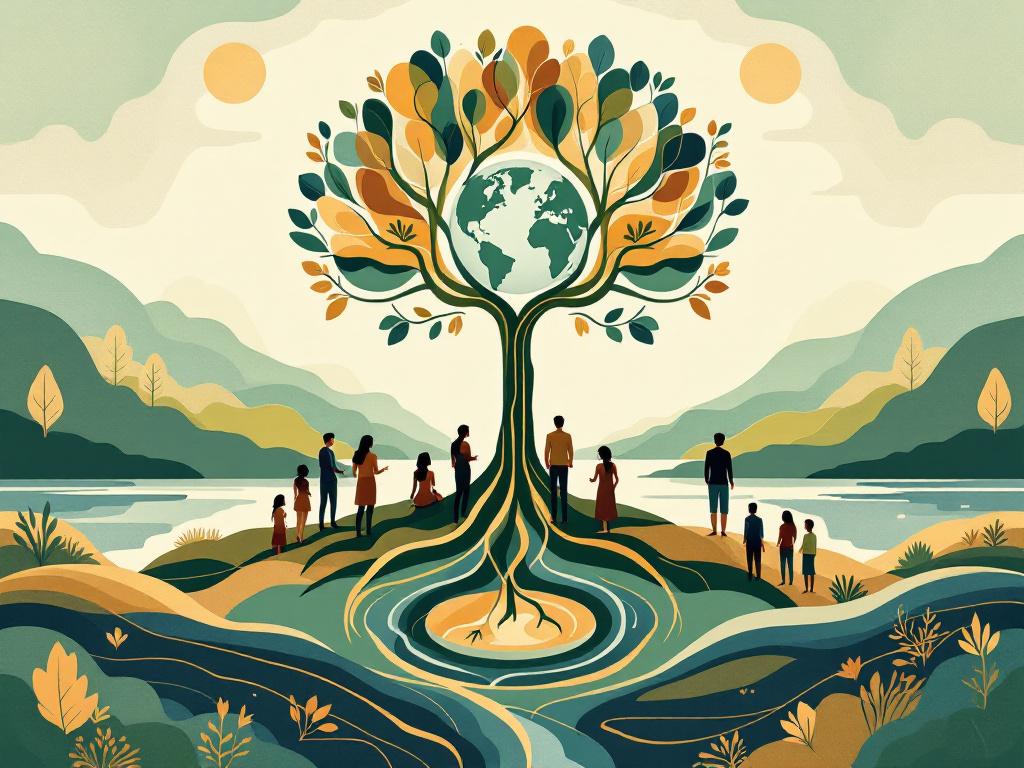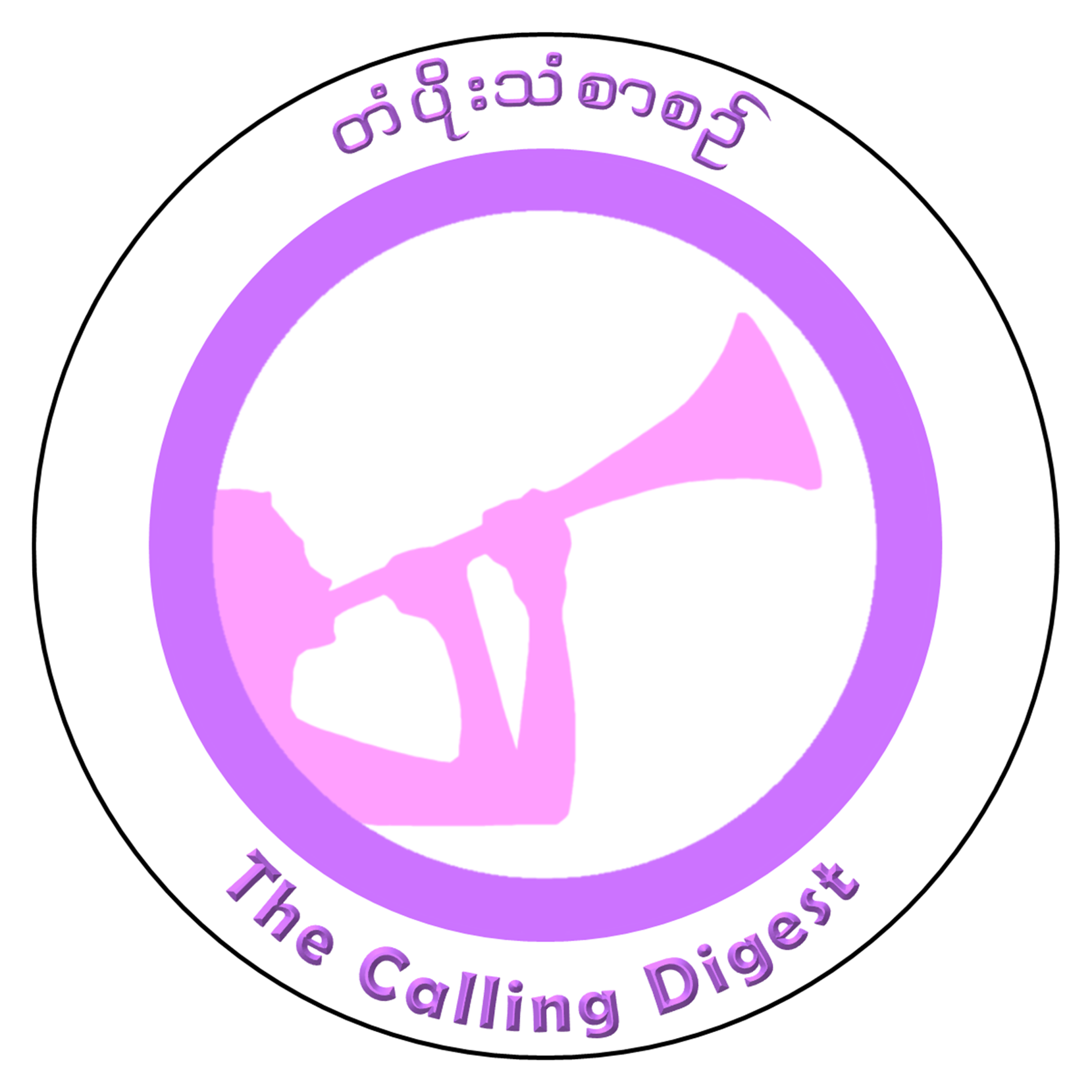Democratic Confederalism: Democracy without a State?

What does it mean to live together freely? To govern not through power, but through trust? These are the quiet, profound questions at the heart of Democratic Confederalism, a philosophy that invites us to rethink democracy not as a system imposed from above, but as a way of life grown from below—among neighbors, in the streets and villages.
Let us explore this vision, its practices, its possibilities, and the challenges it faces, with a spirit of curiosity.
A Democracy Rooted in Neighbors
Democratic Confederalism, as initially envisioned by Abdullah Öcalan, begins with a simple yet radical idea: democracy should start not with the state, but with the people who share a place and a life. It imagines a world where power flows upward from local communities—neighborhoods, villages, towns—rather than downward from distant institutions. This is a “democracy of neighbors,” where ordinary people shape their shared future through dialogue and care.
At its core, this philosophy values:
- Self-governance: Communities make decisions together, organizing around their own needs, from healthcare to education to resolving disputes.
- Gender equality: Women are equal partners in decision-making, challenging traditions of dominance.
- Ecological awareness: Living in harmony with the earth is a guiding principle.
- Pluralism: Diverse voices and cultures are welcomed, not silenced.
The Practice of Shared Responsibility
In Rojava, the autonomous region of North and East Syria, this philosophy has been tested amid the chaos of war. Here, people have dared to build something new: a society where democracy begins in small, local assemblies and neighborhood communes. These are not grand parliaments but humble gatherings—families meeting over tea, neighbors discussing their shared challenges.
In these assemblies, decisions are made not by majority rule but through consent—a process that asks, “Is this good enough for now, and safe enough to try?” This question invites humility, making space for dissent not as a threat, but as a way to strengthen ideas. Leadership is not about control but about service, often rotated to ensure accountability. Even children and youth are invited into this experiment, with youth parliaments mirroring adult assemblies. This is democracy as education: learning what it means to belong, to be responsible, to shape a shared future.
The approach draws from many traditions—libertarian municipalism, sociocracy, the Indian concept of neighborocracy, and the wisdom of communities who know that trust is earned through dialogue, not decreed from above. It also builds on Asset-Based Community Development, where people start not by listing their problems, but by celebrating their strengths—the skills, passions, and relationships already present.
The Power of Trust in Crisis
Rojava’s experiment shows that democracy, in its deepest sense, is not a luxury but a lifeline. In the face of displacement, military threats, and skepticism, communities have found strength in acting together. This suggests a profound lesson. Every community, no matter how broken, holds the seeds of its own renewal. By weaving together their strengths, neighbors become co-creators of a common life.
The lesson from Rojava is not about perfect systems but about relationships. Politics, at its best, is the patient work of listening, responding, and building trust. Democratic Confederalism offers an invitation to hope, not through grand promises but through the quiet courage of neighbors trusting to govern together.
Theoretical Challenges: Living Without a State
Yet, this vision raises difficult questions. Democratic Confederalism rejects the nation-state, with its centralized power and tendency toward uniformity. But in a world dominated by states, how can a network of communes engage with the global order? How would it negotiate treaties, defend against aggression, or coordinate large-scale needs like infrastructure or environmental protection without creating centralized structures that might resemble a state? How decentralized communities can act collectively on a large scale while preserving local autonomy? For example, managing a pandemic or building a railway requires coordination across regions. Without clear mechanisms, there’s a risk that new forms of bureaucracy or power could emerge, undermining the very freedom the system seeks to protect.
Ideology and Leadership
Another question arises again. What holds a confederation together? If communities are autonomous, how are the boundaries of the larger confederation decided? Is it based on geography, shared values, or something else? Without a central authority, how does the system resolve disputes between communes or prevent fragmentation?
Democratic Confederalism champions leaderless, horizontal assemblies, yet it is deeply tied to Öcalan. But this is perhaps more relevant to the Kurds. The question is how does the philosophy prevent his influence—or any ideology—from becoming a form of centralized authority? A system that values open dialogue must guard against its founding ideas stifling dissent or limiting pluralism. It needs ways to encourage ongoing critique and evolution of its own principles.
There are other questions about transition. How does a world of nation-states transform into a confederation of communities? Does the philosophy rely on rare conditions, like state collapse or conflict, to create space for new structures? Or can it offer a universal model for change?
Critiques of Practice: Compromising Ideals
In practice, critics argue that Rojava’s application of Democratic Confederalism reveals tensions. One major critique is that the philosophy’s anti-imperialist roots are compromised by alliances with powers like the United States, seen as imperial forces. Some argue that the philosophy’s logic—treating all global actors as equivalent in a “third world war”—justifies these alliances as pragmatic. On February 2025, Ocalan made a historic call from prison for the party to lay down its arms, dissolve itself and end its decades-long conflict with the Turkish state. This risks betraying the goal of a post-colonial world free from imperial dominance, creating a gap between the philosophy’s ideals and its actions. External critics, like the Communist Party of Turkiye, argue that Democratic Confederalism has merged with liberalism, aligning with Western powers and losing its revolutionary edge. This suggests that the philosophy, in practice, may dilute its radical vision, adopting ideas or alliances that clash with its anti-imperialist origins.
Another critique questions whether the philosophy adequately prevents power from concentrating, especially in crisis. In Rojava, some see an “autocracy” under military leaders, despite the theory of assembly-based governance. This suggests a potential weakness: in militarized or unstable contexts, can the philosophy ensure that civilian, decentralized assemblies hold power over military or political structures? The design may need stronger safeguards to maintain its democratic core.
The Promise and the Challenge
Democratic Confederalism offers a beautiful, challenging vision: a world where democracy is not a distant institution but a living practice, rooted in trust and shared responsibility. Its experiments in Rojava show what’s possible when people dare to govern together, even in crisis. Yet, it faces deep questions—about surviving in a state-dominated world, balancing local and collective needs, ensuring ideological openness, and staying true to its liberationist roots.
Perhaps the true power of this philosophy lies not in providing all the answers, but in asking us to consider this. What kind of relationships must we build to live freely? And can we trust one another enough to try?
